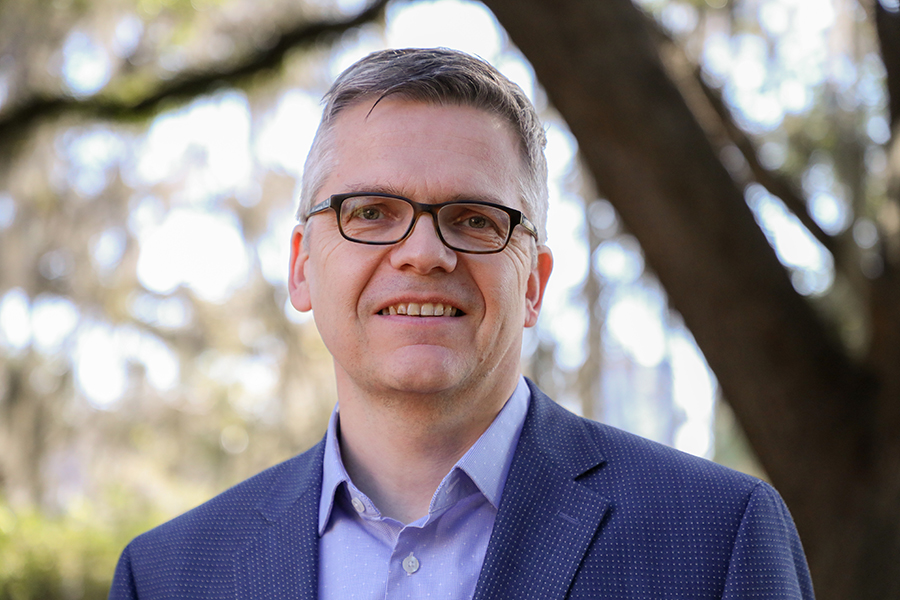FSU unveils new master’s degree track in computational linguistics for Fall 2025

This August, Florida State University’s College of Arts and Sciences will welcome its first cohort of students into a new interdisciplinary master’s degree track that will prepare them to enter a growing job market spanning industries including government, technology, health care, business, education and more.
The new track in computational linguistics, part of FSU’s Interdisciplinary Data Science Masters’s Degree Program, pulls from foundational concepts of data science and computational research methods to unlock new avenues in the scientific study of language and its sounds, structures and meanings.

“Rapid developments in artificial intelligence have highlighted the critical importance of analyzing spoken and written language as well as other forms of communication,” said Reinier Leushuis, chair of the Department of Modern Languages and Linguistics and a key player in the track’s establishment. “This new track is a perfect example of how interdisciplinary efforts lead to cutting-edge and innovative research that has exciting real-world implications.”
With demand for professional computational linguists — researchers who combine data science with linguistics to process language data — increasing, this track offers full-time and part-time study options as well as funding opportunities like tuition waivers for university and state employees, creating opportunities for working professionals in addition to students pursuing graduate study immediately after earning a bachelor’s degree.
“AI software that uses voice recognition, such as Apple’s virtual assistant Siri, is developed by computational linguists using natural language processing engineering,” said Tom Juzek, assistant professor of computational linguistics. “They also contribute to literacy programming, language localization, translations, speech data analysis, knowledge engineering, voice interface design, language documentation and revitalization. Their skills are highly sought by government intelligence services and tech companies such as Google, Microsoft, Amazon and Duolingo.”

Students in the computational linguistics track will engage with world-class instructors inside and outside the classroom through opportunities such as the FSU Scientific Computing Artificial Intelligence Seminar in Tallahassee, the annual Artificial Intelligence and Machine Learning Expo, colloquia and technological resources at the FSU Innovation Hub and more.
“As linguists, we gain key insights about our research that would be difficult or impossible to achieve without incorporating data science and computations into our work,” Juzek said. “In the last few decades alone, our understanding of language acquisition and children’s language acquisition, for example, improved greatly after using computational methods to analyze many language datasets, similar to datasets students will encounter in their computational linguistics courses.”
While the track has no thesis requirement, students can pursue research opportunities with a program faculty member via Directed Individual Study and have access to laboratories such as the Visualization Laboratory in the Department of Scientific Computing and the Language Processing and Eye-tracking Laboratory in the Diffenbaugh Building.

In addition to foundational data science courses on machine learning, regression methods, ethics and more, students in the track may also take electives such as psycholinguistics, text analysis and deep learning, language invention, and more to stay updated on the newest applications in groundbreaking language technology.
“Large datasets are permeating and impacting every area of scientific endeavor, and this track is especially timely because large language models, the engine of today’s AI revolution, draw deeply from the field of linguistics,” said Gordon Erlebacher, director of the Interdisciplinary Data Science program and a professor in the Department of Scientific Computing. “By launching this track, we’re positioning FSU students at the forefront of a transformative field combining computational techniques with linguistic insights.”
Visit the FSU Computational Linguistics website to learn more about the new master’s degree track, including application information.
